The Microdiscectomy Cost in Turkey approximately starts from TRY 180840 (USD 6000)
Microdiscectomy is a type of neurosurgery that is also known as microdecompression. During this procedure, a small part of the bone decompressing the nerve root or the spinal cord is removed to relieve pain arising out of the condition. This procedure is considered to be more effective in the treatment of leg pain or sciatica arising out of compression of nerve root than the lower back pain. This treatment provides immediate relief from pain.
Although microdiscectomy is a neurological procedure, it also involves a highly experienced orthopedic surgeon. There are several hospitals in Turkey that conduct this highly specialized neurosurgery. Microdiscectomy in Turkey is opted by several patients from around the world who suffer from nerve root compression arising out of herniation. This is because of the quality of medical services offered by the hospitals in Turkey and the availability of the latest technology and highly qualified doctors.
The cost of herniated lumbar disk treatment in Turkey is $5,486, whereas the cost of microdiscectomy in Croatia, Germany, the USA, and the UK is $6,729, $12,337, $28,038 and $16,823 respectively. Turkey provides treatment on low cost with excellent hospital infrastructure, availability of experienced surgeons and highly professional paramedical staff and latest and advanced equipment. Hospitals of Turkey also provide rehabilitation facilities for accelerated recovery.
| Country | Cost | Local_currency |
|---|---|---|
| Czechia | USD 12000 | Czechia 272280 |
| Greece | USD 10000 | Greece 9200 |
| Hungary | USD 7000 | Hungary 2439920 |
| India | USD 4000 | India 332600 |
| Israel | USD 18000 | Israel 68400 |
| Lithuania | USD 7000 | Lithuania 6440 |
| Malaysia | USD 9500 | Malaysia 44745 |
| Poland | USD 7300 | Poland 29492 |
| South Korea | USD 13000 | South Korea 17454970 |
| Spain | USD 11000 | Spain 10120 |
| Thailand | USD 9000 | Thailand 320850 |
| Turkey | USD 6000 | Turkey 180840 |
| United Arab Emirates | USD 8080 | United Arab Emirates 29654 |
| United Kingdom | USD 20500 | United Kingdom 16195 |
Treatment cost
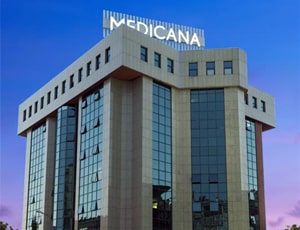
Types of Microdiscectomy in Medicana Camlica Hospital and its associated cost
| Treatment Option | Approximate Cost Range (USD) | Approximate Cost Range (TRY) |
|---|---|---|
| Microdiscectomy (Overall) | 5595 - 7922 | 168885 - 236203 |
| Open Microdiscectomy | 4448 - 6631 | 136932 - 199996 |
| Endoscopic Microdiscectomy | 5526 - 8000 | 171908 - 247930 |
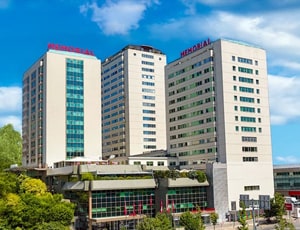
Types of Microdiscectomy in Memorial Sisli Hospital and its associated cost
| Treatment Option | Approximate Cost Range (USD) | Approximate Cost Range (TRY) |
|---|---|---|
| Microdiscectomy (Overall) | 5591 - 7852 | 165911 - 232446 |
| Open Microdiscectomy | 4588 - 6836 | 136823 - 202251 |
| Endoscopic Microdiscectomy | 5702 - 8157 | 166135 - 239648 |
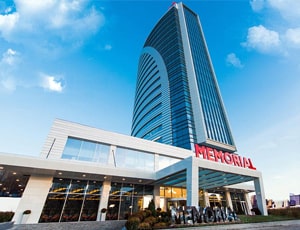
Types of Microdiscectomy in Memorial Ankara Hospital and its associated cost
| Treatment Option | Approximate Cost Range (USD) | Approximate Cost Range (TRY) |
|---|---|---|
| Microdiscectomy (Overall) | 5669 - 7726 | 168544 - 238863 |
| Open Microdiscectomy | 4586 - 6816 | 138185 - 204435 |
| Endoscopic Microdiscectomy | 5595 - 7989 | 169813 - 239241 |

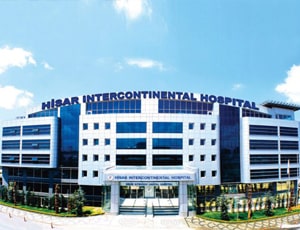
Types of Microdiscectomy in Hisar Intercontinental Hospital and its associated cost
| Treatment Option | Approximate Cost Range (USD) | Approximate Cost Range (TRY) |
|---|---|---|
| Microdiscectomy (Overall) | 5534 - 7789 | 166279 - 232133 |
| Open Microdiscectomy | 4467 - 6752 | 133701 - 199078 |
| Endoscopic Microdiscectomy | 5656 - 8071 | 172771 - 249112 |
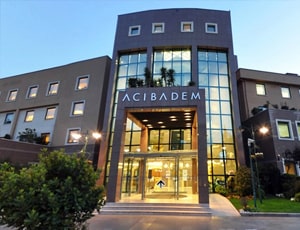
Types of Microdiscectomy in Acibadem Kadikoy Hospital and its associated cost
| Treatment Option | Approximate Cost Range (USD) | Approximate Cost Range (TRY) |
|---|---|---|
| Microdiscectomy (Overall) | 5530 - 7995 | 172060 - 237027 |
| Open Microdiscectomy | 4597 - 6700 | 137376 - 204853 |
| Endoscopic Microdiscectomy | 5667 - 8012 | 172413 - 247058 |
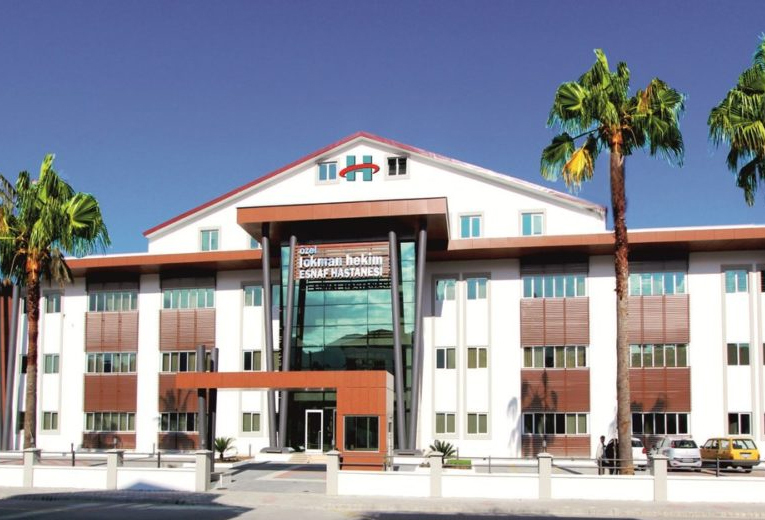
Types of Microdiscectomy in Lokman Hekim Esnaf Hospital and its associated cost
| Treatment Option | Approximate Cost Range (USD) | Approximate Cost Range (TRY) |
|---|---|---|
| Microdiscectomy (Overall) | 5692 - 7921 | 169953 - 233013 |
| Open Microdiscectomy | 4569 - 6843 | 133295 - 202814 |
| Endoscopic Microdiscectomy | 5630 - 8261 | 168574 - 244629 |
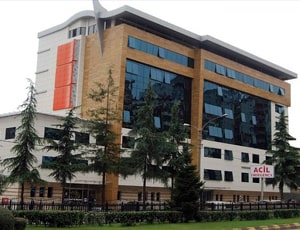
Types of Microdiscectomy in Medical Park Karadeniz Hospital and its associated cost
| Treatment Option | Approximate Cost Range (USD) | Approximate Cost Range (TRY) |
|---|---|---|
| Microdiscectomy (Overall) | 5672 - 7986 | 172526 - 236611 |
| Open Microdiscectomy | 4561 - 6792 | 134832 - 205684 |
| Endoscopic Microdiscectomy | 5592 - 8017 | 169331 - 240795 |
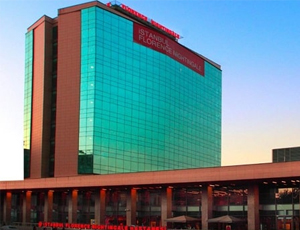
The first green hospital in Turkey, Istanbul Florence Nightingale Hospital, was inaugurated in 2013. Group The Florence Nightingale hospitals are the first Turkish hospitals to be granted Joint Commission International (JCI) accreditation, and they continue to be associated and work with esteemed healthcare organizations.
The Florence Nightingale Group treats 250,000 outpatients and 70,000 inpatients annually, demonstrating its excellence. The hospitals have a capacity of 804 inpatient beds, 141 ICU beds, and 40 operating rooms, and perform 20,000+ procedures annually, of which 1,000 are cardiac operations for children and 2,000 are for adults. For conducting difficult orthopedic, general surgery, minimally invasive, and other heart treatments, the facility stands out. All operating rooms can be interconnected by audio-visual to a 300-person conference room and global hubs, enabling interactive medical teaching and scientific activity.
Interpreter and translator services for languages such as Turkish, Azerbaijani, Bulgarian, Arabic, English, Persian, Serbian, Russian, Albanian, Macedonian, German, Bosnian, and Romanian are available.
The hospital has specialized departments such as Cardiology and Cardiac Surgery, IVF and Infertility, Nephrology, Oncology and Oncosurgery, Spine Surgery, Neurology and Neurosurgery, Orthopedics, Gynecology, and Obesity or Bariatric Surgery. With an extensively qualified and experienced team of advisors and interpreters, Florence Nightingale Istanbul is committed to providing one-stop service from beginning to end, 24 hours a day, 7 days a week.
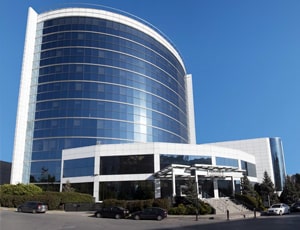
Types of Microdiscectomy in Medicana International Istanbul and its associated cost
| Treatment Option | Approximate Cost Range (USD) | Approximate Cost Range (TRY) |
|---|---|---|
| Microdiscectomy (Overall) | 5633 - 7776 | 168360 - 238909 |
| Open Microdiscectomy | 4585 - 6889 | 138276 - 201297 |
| Endoscopic Microdiscectomy | 5679 - 8218 | 168418 - 242525 |
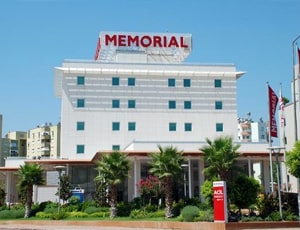
Types of Microdiscectomy in Memorial Antalya Hospital and its associated cost
| Treatment Option | Approximate Cost Range (USD) | Approximate Cost Range (TRY) |
|---|---|---|
| Microdiscectomy (Overall) | 5685 - 7769 | 170424 - 233391 |
| Open Microdiscectomy | 4537 - 6709 | 138315 - 207250 |
| Endoscopic Microdiscectomy | 5528 - 8190 | 169856 - 245560 |
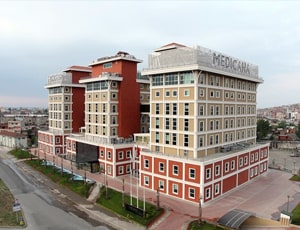
Types of Microdiscectomy in Medicana International Samsun Hospital and its associated cost
| Treatment Option | Approximate Cost Range (USD) | Approximate Cost Range (TRY) |
|---|---|---|
| Microdiscectomy (Overall) | 5649 - 7768 | 171570 - 234739 |
| Open Microdiscectomy | 4461 - 6760 | 137569 - 200358 |
| Endoscopic Microdiscectomy | 5716 - 8131 | 172147 - 240583 |
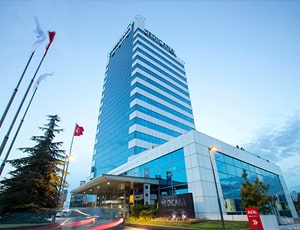
Types of Microdiscectomy in Medicana International Ankara Hospital and its associated cost
| Treatment Option | Approximate Cost Range (USD) | Approximate Cost Range (TRY) |
|---|---|---|
| Microdiscectomy (Overall) | 5697 - 7802 | 170771 - 235146 |
| Open Microdiscectomy | 4472 - 6626 | 132711 - 200221 |
| Endoscopic Microdiscectomy | 5622 - 8026 | 170988 - 241823 |
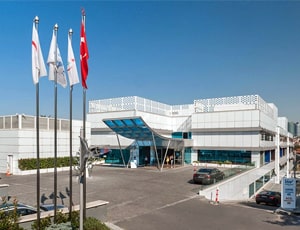
Types of Microdiscectomy in Liv Hospital Ulus and its associated cost
| Treatment Option | Approximate Cost Range (USD) | Approximate Cost Range (TRY) |
|---|---|---|
| Microdiscectomy (Overall) | 5659 - 8018 | 170033 - 236671 |
| Open Microdiscectomy | 4408 - 6867 | 132639 - 200856 |
| Endoscopic Microdiscectomy | 5688 - 8052 | 168459 - 241893 |
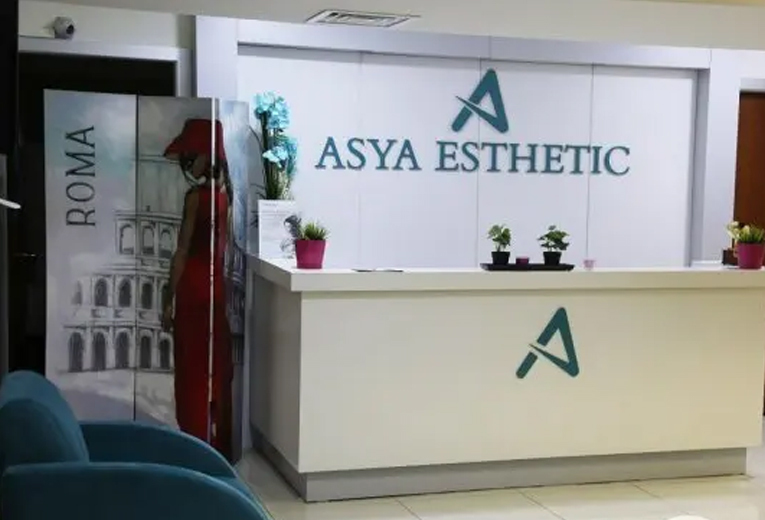
Types of Microdiscectomy in Asya Hospital and its associated cost
| Treatment Option | Approximate Cost Range (USD) | Approximate Cost Range (TRY) |
|---|---|---|
| Microdiscectomy (Overall) | 5074 - 7105 | 152361 - 214388 |
| Open Microdiscectomy | 4052 - 6119 | 121884 - 183819 |
| Endoscopic Microdiscectomy | 5057 - 7312 | 153569 - 221052 |
Types of Microdiscectomy in Istinye University Medical Park Gaziosmanpasa Hospital and its associated cost
| Treatment Option | Approximate Cost Range (USD) | Approximate Cost Range (TRY) |
|---|---|---|
| Microdiscectomy (Overall) | 5610 - 7785 | 171355 - 241380 |
| Open Microdiscectomy | 4565 - 6822 | 136067 - 202031 |
| Endoscopic Microdiscectomy | 5613 - 8100 | 167021 - 249361 |
Microdiscectomy is also known as microdecompression or cervical microdiscectomy. It is one of the most commonly performed spine surgery procedures.
Microdiscectomy or cervical microdiscectomy is preferred for patients with a lumbar herniated disc. The main goal of a discectomy is to relieve the pressure on a spinal nerve root by removing the material causing the pain. Traditionally, this purpose was solved by an open technique called lumbar discectomy surgery, which involves making a large incision to cut some of the back muscles, leading to a slow and painful recovery. Nowadays, an advanced form of surgery called microdiscectomy can achieve the same goal that too with the help of a small incision and fewer injury to back muscles. As a result, the recovery takes less time and is less painful. A special microscope is used in microdiscectomy to view the disc and nerves. The larger view allows the surgeon to make a smaller incision, causing less damage to the surrounding tissues.
Sciatica is a condition caused by compression of the spinal nerve, which generally results in chronic pain in the legs of the patients. This compression of the spinal nerve is frequently the result of a herniated lumbar disc. As a herniagrows, the damaged tissue extends into the spinal column and pushes on the nerves. This condition causes the nerves to send pain signals to the brain and the brain interprets the pain source to be coming from the legs.
Most commonly, sciatica heals naturally or with the help of medication in a few weeks. But, if sciatica lasts more than 12 weeks after taking oral medicines, patients may benefit from discectomy. Discectomy is also used for the treatment of spondylosis and lumbar spinal stenosis. While spondylosis occurs due to degenerative osteoarthritis of the vertebrae, lumbar spinal stenosis occurs due to narrowing of the spinal canal leading to nerve compression. The latter may also warrant the need for a spinal stenosis surgery.
Lumbar discectomy surgery is typically performed for rehabilitation of a herniated disc. The same thing is done during microdiscectomy, but with the help of a special microscope. During this procedure, a small part of the bone over the nerve root and disc material under the nerve root is taken out, which finally result in relieving pressure on the spinal nerve column. The microdiscectomy treatment starts by giving general anesthesia to the patient. The patient will be unconscious during the entire surgery and is not able to feel anything. Preoperative intravenous antibiotics are given before the surgery.
The procedure is performed with the patient lying face down, generally using a special operating table with special paddings. The surgical region is cleansed with a cleaning solution. A one-to two-centimeter incision is made directly over the area of the herniated disc. Special retractors and a lighted operating microscope are used to allow the surgeon to see the region of the spine. It helps in minimizing or avoid cutting of the adjacent muscles and tissues.
Before removing a herniated disc, a small piece of bone called lamina is removed from the affected vertebra. This is called a laminotomy, a procedure which allows the surgeon to fully visualize the herniated disc. Small scissor-like tools and grasping instruments are used to remove the protruding disc material. Lastly, the incision area is washed out with sterile water containing antibiotics and the deep fascial layer and subcutaneous layers are closed with a few sutures. The skin is fixed up using special surgical glue and does not require bandages.
The microdiscectomy recovery time is much less than any other invasive procedure. Typically, the patient can expect to leave the hospital within 24 hours of the surgery. Patients may be advised to meet a physical therapist before leaving the hospital. The therapist will instruct the patient on how to reduce twisting and bending of the back. The therapist may advise some exercises to improve the strength and flexibility of the muscles around the spine.
Patients are advised not to drive, sit for a prolonged period, lift anything heavy and bend over immediately after the surgery. The patient is able to resume normal activities after two weeks, but they are advised to avoid lifting heavy objects for at least four weeks after the surgery. Full recovery after microdiscectomy procedure takes at least four to six weeks.
Microdiscectomy is a faster pain relief option than nonsurgical treatment in case of a lumbar herniated disc, but it is not significantly clear that whether surgery makes a difference in what treatment may be needed later on.
Some post-microdiscectomy researchers determined that people who have had microdiscectomy have reported similar improvements as other treatments after one year of surgery. Although it is a less invasive procedure in comparison to other treatment such as spinal fusion, microdiscectomy also involves certain risks just like any other surgery.
Some of the common microdiscectomy risks are:
Ask your healthcare adviser for the best multiple options and choose the one that meets your expectations
The minimum cost of Microdiscectomy in Turkey is about USD$ 6000. There are many SAS, JCI, TEMOS certified hospitals in Turkey that offer Microdiscectomy.
Microdiscectomy cost in Turkey varies from one hospital to the other. The Microdiscectomy package cost usually includes all the expenses related to pre and post surgery expenses of the patient. The comprehensive Microdiscectomy package cost includes the cost of investigations, surgery, medicines and consumables. A prolonged hospital stay due to delayed recovery, new diagnosis and complications after surgery may increase the cost of Microdiscectomy in Turkey.
Microdiscectomy in Turkey is offered by multiple hospitals across the country. The following are some of the most renowned hospitals for Microdiscectomy in Turkey:
After Microdiscectomy in Turkey, the patient is supposed to stay in guest house for another 14 days. This duration of stay is recommended to complete all the necessary follow-ups and control tests to ensure that the surgery was successful.
Turkey is one of the most popular countries for Microdiscectomy in the world. The country offers the best treatment of Microdiscectomy, best doctors, and advanced hospital infrastructure. Some of the other top destinations for Microdiscectomy include the following:
Apart from the cost of Microdiscectomy, the patient is also required to pay additionally for daily meals and guest house accommodation. These charges may vary starting from USD$ 40 per person.
Microdiscectomy in Turkey is offered in almost all metropolitan cities, including the following:
After Microdiscectomy, the patient is supposed to stay for about 1 days in the hospital for recovery and monitoring. During the recovery, the patient is carefully monitored and control tests are performed to see that everything is okay. If required, physiotherapy sessions are also planned during recovery in hospital.
There are about 46 Microdiscectomy hospitals in Turkey that are best known for their services. Apart from good services, the hospitals are known to follow all standard and legal guidelines as dictated by the local medical affairs body or organization.
Microdiscectomy is also known as micro decompression. This technique is typically performed by either a neurosurgeon or orthopedic surgeon. The microdiscectomy is a minimally invasive procedure that is used for removing the herniated disc from the vertebral column. Herniated disk compresses the spinal nerve passing through the vertebral column. This pressure on the nerve leads to chronic pain, numbness and reduced quality of life. Microdiscectomy is done by making a small incision and causing minimal tissue damage to the spinal nerve and surrounding tissues.
Vertebral discs are present in between the vertebra of the vertebral column. The function of these discs is to provide cushioning to the spine. Disc has an outer and inner part. The inner contains gels like substance while the outer part is tough. When the gel from inner part leaks though the tough outer parts, the condition is known as a herniated disc. The damaged tissue compresses the nerve leading to pain. Microdiscectomy is required to remove the damaged portion of the disc that is compressing the nerve.
People with the following characters are ideal for microdiscectomy:
The diagnostic tests such as Ct and MRI have revealed the presence of herniated disc.
Leg pain is more severe as compared to back pain.
A person who experiences pain and numbness in legs.
Patient experience loss of sexual function and poor bowel control.
The symptoms are not managed through medications or physiotherapy.
If the person experiences sciatica pain for more than 12 weeks, microdiscectomy may likely to provide relief to such patients.
If the person experiences difficulty in standing or walking
Following are some of the factors that may reduce the complications after surgery:
Normal weight: Patients with normal weight likely to recover more faster for microdiscectomy as compared to obese people. Obese people put increased stress on the vertebral disc.
Nonsmokers: Various studies have been conducted to prove that non-smokers are likely to get fewer complications during an orthopedic surgery as compared to smokers. Further, the rate of healing is faster in non-smokers.
Turkey one of the excellent and favorable destinations for microdiscectomy surgery. Following are some reasons for opting Turkey for microdiscectomy:
Cost: Cost is a major reason for increasing medical tourism in Turkey. In Turkey, hospitals provide medical and surgical treatment at low cost as compared to developed countries.
Surgeons: Turkey has trained and qualified surgeons for performing microdiscectomy with high success rate. Doctors in Turkey provide the best and effective treatment after comprehensive diagnosis. Surgeons are assisted with highly trained and experienced paramedical staff during microdiscectomy.
Good medical infrastructure: Improvement in medical infrastructure is another factor for attracting medical tourist. Hospitals have access to the latest technologies available all over the world for conducting complex surgical procedures like microdiscectomy.
JCI-accredited hospitals: Turkey has a large number of JCI-accredited hospitals. Hospitals which maintain and achieve JCI-accreditation provides best care and safety to the patients and also follow strict European protocols and regulations.
Tourist place: Medical tourists also have the option to visit places of tourist attractions in Turkey such as Patara beach, Bodrum castle, Oludeniz, and Blue mosque among others.
Medicana Konya. Konya, Turkey
LIV Hospital, Istanbul, Turkey
Kent Hospital, Izmir, Turkey
Medical Park Antalya Hospital, Antalya, Turkey
Memorial Ankara Hospital, Ankara, Turkey
Memorial Antalya Hospital, Ankara, Turkey
Memorial Diyarbakir Hospital, Kayapinar, Turkey
Memorial Hospital, Istanbul, Turkey
Hizmet Hospital, Istanbul, Turkey
Memorial Atasehir Hospital, Istanbul, Turkey
Nejat Akalan, Medipol Mega Hastaneler Kompleksi, Istanbul, Turkey
Ufuk Abacıoğlu, Neolife Medical Center, Istanbul, Turkey
Prof. İsmail Hakkı TEKKÖK, Memorial Ankara Hospital, Ankara, Turkey
Prof. Mahmut AKYÜZ, Memorial Antalya Hospital, Antalya, Turkey
MD Cenk ERMOL, Memorial Antalya Hospital, Antalya, Turkey
Prof. Mehmet TATLI, Memorial Diyarbakir Hospital, Kayapinar, Turkey
MD Adil YILMAZ, Memorial Hospital, Istanbul, Turkey
MD Salim Şentürk, Hizmet Hospital, Istanbul, Turkey
Assoc. Prof. Gökalp SİLAV, memorial Atasehir Hospital, Istanbul, Turkey